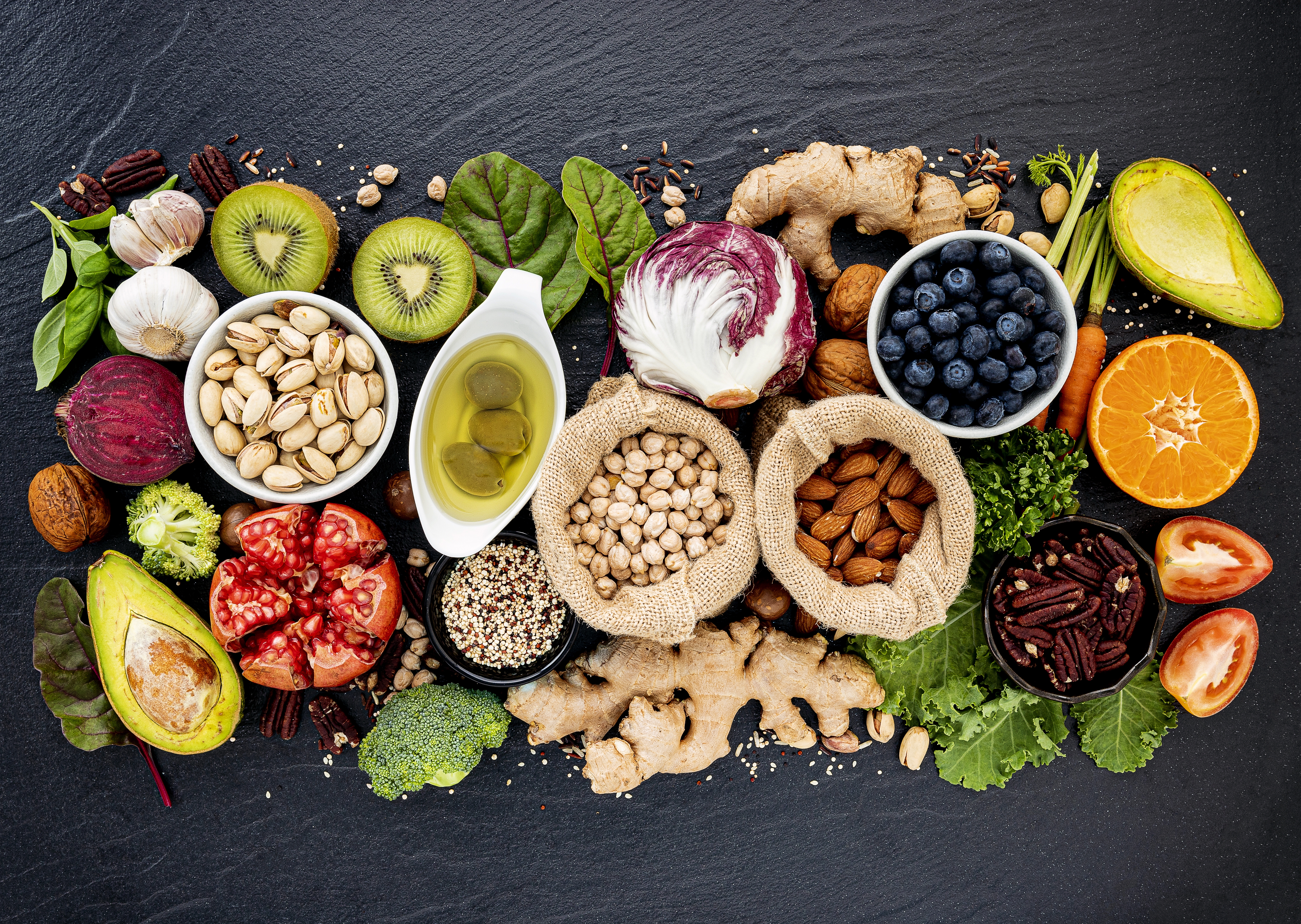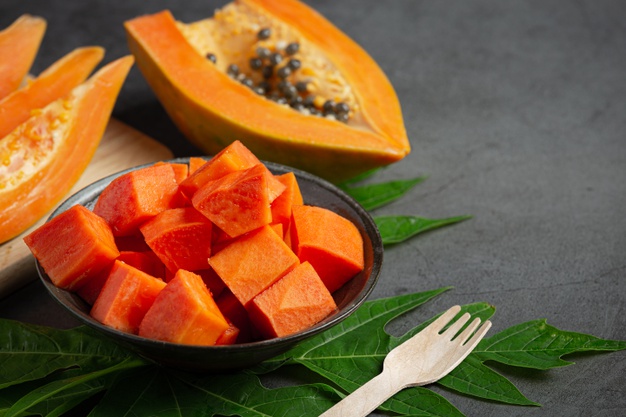Flavonoids are the secondary metabolites and pigments of plants known as polyphenolic compounds. Basically, it is a substance, which contains phenol in its structure. Flavonoids are abundantly present in plants and these are responsible for performing various significant roles within the plants. It is responsible for imparting the color of flowers. It is associated with fixation of symbiotic nitrogen, filtration of UV rays and it can inhibit those organisms which are responsible for various plant diseases. It is allied with protecting the plant cells and tissues from damage and injuries that is why the fruits and vegetables which are obtained from plants are of good biological qualities.
Various epidemiological studies have revealed that flavonoids have played versatile role within human body also for promoting the overall health status of an individual. Recently flavonoids are widely utilized as important dietary ingredients and consumed by a large number of people due to its beneficial health aspects. Studies and researches have exposed that it has anti-inflammatory, anti-allergic, anti-carcinogenic, anti-oxidative and anti-mutagenic property, which is associated with inhibiting the incidence of inflammation, infection, allergy, cancer and mutation within body. It is related with regulating the function of cellular enzymes and thus promotes proper metabolism of the body. It has significant role on preventing coronary heart disease, hepatic disorders and helps to protect the brain. Hence, it can be stated that consumption of foods or supplements that contain flavonoids are beneficial for health and it can reduce the risk of developing various chronic diseases.

Structure and composition of flavonoids
Phenol is a substance which is made up of a phenyl group bound with a hydroxyl group. Flavonoids contain more than one phenol in its structure thus it is known as polyphenolic compound. Basically, the flavonoid is consisting of fifteen carbon in its structure which contains two benzene rings (phenyl rings) which are connected through a heterocyclic pyrane ring.
The biological activity, bioavailability and metabolism of flavonoids entirely depend on the number of hydroxyl group present in its structure.
Source
Flavonoids are an important element of plants and it cannot be synthesized by humans therefore it should be taken through the diet to meet its need. Fruits and vegetables are the richest source of flavonoids. Some important and rich source of flavonoids are listed below –
- Citrus fruits
- Berries
- Red wines

- Teas
- Soybean and other soy product
- Banana
- Apples
- Legumes
- Parsley leaf
- Celery leaf
- Grapes
- Sprouts
- Broccoli
- Beans
- Onion
Type of flavonoids and their health significance
Flavonoids are mainly of six types and serve different functions within the body for approaching a good and disease-free health. This is briefly discussed in the following table –
S/l No | Type of flavonoids | Health significance |
| 1 | Flavones |
|
| 2 | Flavonones |
|
| 3 | Flavonols |
|
| 4 | Flavanols |
|
| 5 | Anthocyanidins |
|
| 6 | Isoflavones |
|
Health benefits

Flavonoids play several important roles in the body which helps to achieve a disease-free good health. As flavonoids are derived from plant sources hence it is considered as naturally occurring substances which are utilized for enhancing the entire nutrition and health status and help in the prevention of various disease. As it is a naturally occurring substance, hence it can be able to easily replace the synthetic compound used to prevent disease. Synthetic products may cause various complication, side effects and it affect the health adversely. Usage of flavonoids in the place of synthetic products can simply reduce the risk of these adverse health effects and can improve the health on a safest way. Hence the flavonoids are said to have nutraceutical and medicinal property as it plays a role of therapeutic agent and associated with promoting health with prevention of diseases.
This article will discuss all vital role played by flavonoids and its health benefit.
Antimicrobial activities of flavonoids
- Flavonoids are present in plants and the plants utilized it in the response to infections caused by microbes. Hence, it can be stated that flavonoids have antimicrobial activities
- It has shown that flavonoids bound with the proteins covalently present in the bacterial cell and made them destroyed. It can bind with the bacterial enzymes, transport protein and make them inactive. Flavonoids are associated with disrupting the microbial cell membrane. These types of actions are responsible for destroying the bacterial cells
- It has exposed that flavonoids are related with preventing the DNA and RNA synthesis in some bacteria by forming covalent bond with nucleic acid and hence inhibit their growth
- It has found that flavonoids interfere with the lifecycle of viruses and affect them adversely
- So, preventing the growth of microbes and their destruction are linked with reduces the susceptibility of developing infectious disease

Anti-inflammatory activity
- Flavonoids have anti-inflammatory and analgesic effect
- It has found that flavonoids destroy the inflammatory cells and affect the entire enzyme systems involved in inflammatory process. Here, flavonoids bind with the enzyme as substrate and inhibit the action of the enzyme so that inflammation cannot take place. So, preventing inflammation flavonoids help to reduce the pain and other health hazards
Antioxidant activities of flavonoids
- Flavonoids act as antioxidant. The capacity of flavonoids to act as antioxidant depend on the arrangement and numbers of functional group present in their structure
- It has found that flavonoids are responsible for suppressing the reactive oxygen species (ROS) and scavenging the free radicals hence it can be stated that reduction in free radicals and ROS are related with protecting the body from oxidative stress which include damages of DNA, RNA, lipid and protein of the body and increasing the risk of developing cancer, cardiac problems, hepatic problems and other serious health complications

Anticancer effect
Recent studies have found that flavonoids are associated with reducing the risk of developing prostate, stomach, breast and lung cancers
Other health benefits
- Flavonoids help to reduce the blood cholesterol level thus preventing the risk of developing arthrosclerosis (deposition of fat within the blood vessels) and promote the cardiac health
- It helps to enhance the good health of hepatic system by reducing fat deposition in hepatic cell
- It helps to prevent obesity
- It helps to prevent diabetes mellitus
All of these are the significant health benefits of flavonoids and consumption of flavonoids are good enough to achieve a great health and helps to avoid various chronic diseases.
Source:
Panche, A.N., Diwan, A.D. and Chandra, S.R., 2016. Flavonoids: an overview. Journal of nutritional science, 5.
Elliott, M. and Chithan, K., 2017. The impact of plant flavonoids on mammalian biology: implications for immunity, inflammation and cancer. In The flavonoids advances in research since 1986 (pp. 619-652). Routledge.
Raffa, D., Maggio, B., Raimondi, M.V., Plescia, F. and Daidone, G., 2017. Recent discoveries of anticancer flavonoids. European journal of medicinal chemistry, 142, pp.213-228.
Wang, T.Y., Li, Q. and Bi, K.S., 2018. Bioactive flavonoids in medicinal plants: Structure, activity and biological fate. Asian Journal of Pharmaceutical Sciences, 13(1), pp.12-23.
Treml, J. and Šmejkal, K., 2016. Flavonoids as potent scavengers of hydroxyl radicals. Comprehensive reviews in food science and food safety, 15(4), pp.720-738.
Perez-Vizcaino, F. and Fraga, C.G., 2018. Research trends in flavonoids and health. Archives of biochemistry and biophysics, 646, pp.107-112.
Kawser Hossain, M., Abdal Dayem, A., Han, J., Yin, Y., Kim, K., Kumar Saha, S., Yang, G.M., Choi, H.Y. and Cho, S.G., 2016. Molecular mechanisms of the anti-obesity and anti-diabetic properties of flavonoids. International journal of molecular sciences, 17(4), p.569.
Mulvihill, E.E., Burke, A.C. and Huff, M.W., 2016. Citrus flavonoids as regulators of lipoprotein metabolism and atherosclerosis. Annual review of nutrition, 36, pp.275-299.
Pérez-Cano, F.J. and Castell, M., 2016. Flavonoids, inflammation and immune system.







